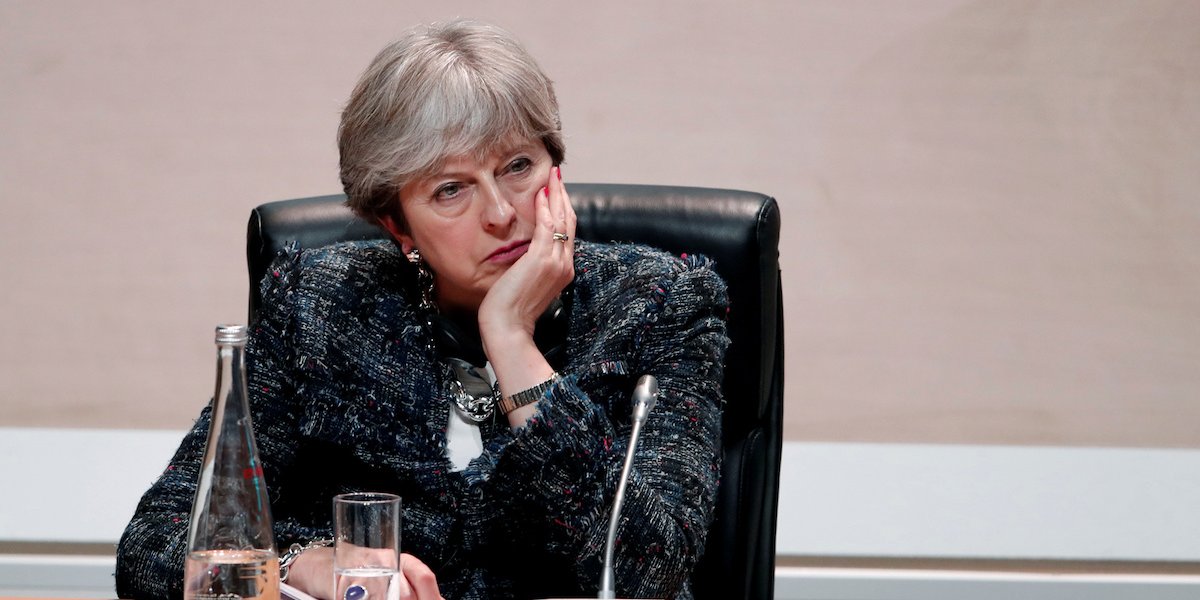 Britain’s Prime minister Theresa May attends the One Planet Summit at the Seine Musicale center in Boulogne-Billancourt, near Paris, France, December 12, 2017.REUTERS/Benoit Tessier
Britain’s Prime minister Theresa May attends the One Planet Summit at the Seine Musicale center in Boulogne-Billancourt, near Paris, France, December 12, 2017.REUTERS/Benoit Tessier
- Charles Ries, who helped negotiate NAFTA, believes Theresa May complicated Brexit discussions by triggering Article 50 too quickly and said the hardest part of negotiations are still to come.
- “The British never made an attempt to have serious conversations at the summit level about what the onward relationship would be before they invoked Article 50,” said Ries.
LONDON — A diplomat who negotiated NAFTA believes Theresa May complicated Brexit discussions by triggering Article 50 too quickly and said the hardest part of negotiations are still to come.
“The British never made an attempt to have serious conversations at the summit level about what the onward relationship would be before they invoked Article 50,” said Ambassador Charles Ries, vice president of the RAND Corporation.
Ries is a former US diplomat whose career included posts overseeing the US-European Union relationship and working as a member of the North American Free Trade Agreement (NAFTA) negotiating team, which created the world’s largest free trade agreement between Canada, Mexico, and the United States.
Ries acknowledged that the European Commission rigidly followed its “‘no negotiations without notification” doctrine and refused to discuss “end-state” matters with Britain until it received formal notice of its intention to leave the bloc. He insisted, however, that negotiations would have been easier had the prime minister waited before triggering Article 50 so that each side had a better understanding of their respective aims.
“If the Prime Minister had waited before invoking Article 50, until there was a general understanding among the alliance that we agree, ahead of time, what the end point was going to be, that makes it a lot easier on negotiations,” he said.
“There was never any attempt to do that, partially I think because the British system and Whitehall didn’t know what they were looking for at this stage but there was a political imperative to act, so as to make it irreversible.”
“That decision has made it more difficult now. Time is short and you’re finally getting to the real heart of the matter which is the future trade and economic relationship. The second part is the hardest part. The endgame will be complex.
“At the heart of the matter — the choices Britain must make — are still ahead of them,” he said.













